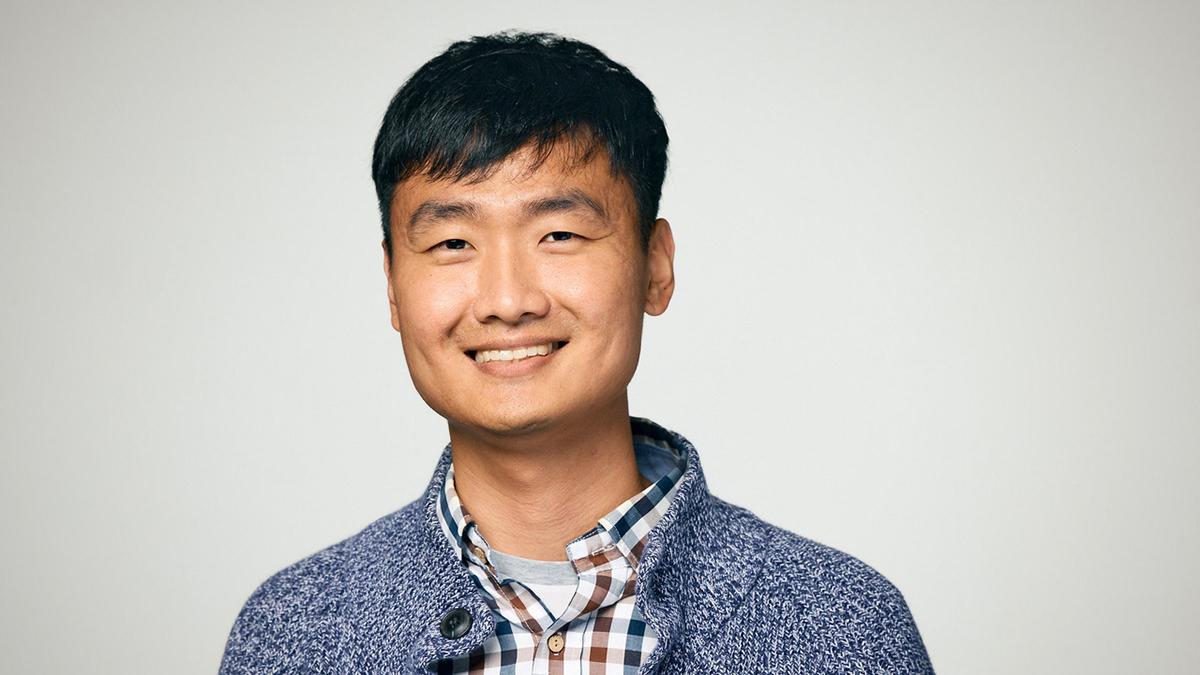Postdoctoral fellow Jinhwan Kim is working to advance nanotechnology and create innovative approaches to treat cancer and other diseases.
His work has caught the attention of the National Institutes of Health, which has awarded him a sought-after Pathway to Independence Award (K99/R00) to support his postdoctoral training and build a foundation for his career as an independent researcher.
“I am very honored to have received this prestigious award,” Kim said. “The opportunity will foster my transition from an investigator with a foundation in nanomaterials to one with a broader vision of applications to cell engineering and medical imaging.”
The K99/R00 Pathway awards are two-part grants: one to two years of funding for mentored support of Kim’s postdoctoral research followed by three years of independent research support. The goal is to develop “a creative, independent research scientist who can establish and sustain a strong, independent research program,” according to NIH, including successfully competing for the independent research grants known as R01s or R35s.
Kim is a researcher in the Wallace H. Coulter Department of Biomedical Engineering at Georgia Tech and Emory University and the Georgia Tech School of Electrical and Computer Engineering. He works in the Ultrasound Imaging and Therapeutics Research Laboratory directed by Joseph M. Pettit Chair and Professor Stanislav Emelianov.
The Pathway to Independence Award will support Kim’s efforts to develop an image-guided therapy and activity monitoring/controlling system based on the combination of nanotechnology, ultrasound and photoacoustic imaging, and cell engineering to increase treatment precision and decrease side effects.
Kim studied at Pohang University of Science and Technology in South Korea, where he earned his Ph.D. in chemistry and bioengineering. During his Ph.D. studies, he developed theranostic nanomaterials that respond to specific stimuli, such as light, pH, and redox potential. They demonstrated high efficacy with few side effects. Kim came to Georgia Tech in 2018.
The competitive Pathway award is a great complement for prospective faculty candidates. Coulter BME faculty members Costas Arvanitis and Leslie Chan were previous recipients along with Peter Kottke Tech’s George W. Woodruff School of Mechanical Engineering.
Latest BME News
Jo honored for his impact on science and mentorship
The department rises to the top in biomedical engineering programs for undergraduate education.
Commercialization program in Coulter BME announces project teams who will receive support to get their research to market.
Courses in the Wallace H. Coulter Department of Biomedical Engineering are being reformatted to incorporate AI and machine learning so students are prepared for a data-driven biotech sector.
Influenced by her mother's journey in engineering, Sriya Surapaneni hopes to inspire other young women in the field.
Coulter BME Professor Earns Tenure, Eyes Future of Innovation in Health and Medicine
The grant will fund the development of cutting-edge technology that could detect colorectal cancer through a simple breath test
The surgical support device landed Coulter BME its 4th consecutive win for the College of Engineering competition.








